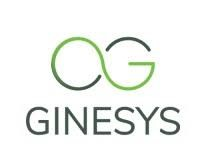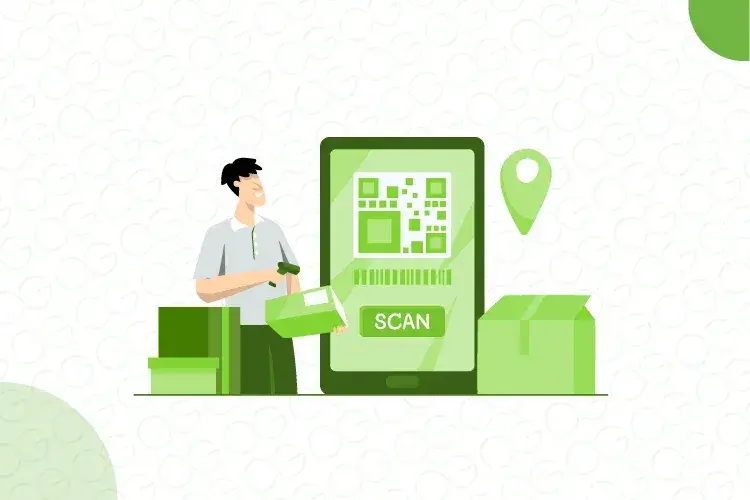Is Tally Suitable for Retail Billing, Retail Management and retail ERP?

Over the years Tally has become the preferred billing and accounting solution for ventures across sectors. This is because the solution offers accurate, instant, and easy billing, saving ventures from the error-prone, cumbersome manual billing process. Along with automation, the billing software enables people to keep comprehensive sales records, which is necessary for accounting taxes and staying compliant. It is integrated with the accounting module of Tally ERP, and hence all sales and purchases are automatically referred to for creating corresponding accounting transactions.
While Tally has boosted operational efficiency significantly, the changing retail environment demands more than just billing and accounting. Therefore, it is worth asking: Is Tally sufficient?

Looking for an alternative to Tally?
Demands of Modern Retail Management
Ventures now require a POS solution that not only helps in retail billing and accounting but also streamlines warehouse management, procurement, etc. Similarly, businesses, having become data-driven, seek granular data on products. This is where Tally falls short.
To understand the demands of the modern retail landscape let’s consider a scenario:
A retail outlet sells a certain breed of apples at identical prices. Still, the apples vary in taste quality owing to the diverse farming conditions of the farms they come from. Due to the fact they belong to the same breed, despite their quality and points of origin, the POS system would price them the same. However, the varying quality of apples affects their sales performance, leaving the retailer baffled.
On the other hand, had the POS system differentiated between the points of origin of the apples, the entrepreneur would have been equipped to identify the problem. This problem of identifying details of product performance is not the only concern surrounding Tally.
The Need to Go Beyond Tally
Being billing and accounting software, Tally barely meets the complex warehousing and analytics needs of retailers. Some of these limitations include a lack of real-time stock movement, poor barcode and RFID integration, and limited POS integration, among others.
Bridging the limitations above, a comprehensive solution can help retailers reduce common problems such as negative billing, shrinkage, etc. Among several solutions available in the market, Ginesys also offers comprehensive retail management solutions via its suite, Ginesys One.
On that note, to help you understand better the need for a more holistic solutions, we will take an in-depth look at:
- Different Retail Challenges in Tally
- How Ginesys One offers seamless, end-to-end retail management solutions.

Leverage Retail Management Solutions.
Challenges with Product Categorization in Tally
To offer the most winning set of products, retailers need to identify the details of the most preferred items and prepare their inventory accordingly. This is why enterprises need to categorize items with granular data. The limited product categorization options in Tally make collating detailed product performance challenging. Here are the limitations of the solution’s item master, and the features concerning the item-related attributes and functionalities:
- Item Group: Tally only allows two attributes per item, making it difficult to group the item effectively with other items. This limitation can make it difficult to locate similar products whose basic attributes may differ.
- Item Hierarchy: An item may fall into different classifications depending on the stock group, category, and ledgers they belong to. Also, units of measure related to units purchased, sold, and stocked in inventory, is another metric of classification or item hierarchy. However, Tally only allows two levels of hierarchy, making it cumbersome to track things.
- Image Attachment: Models, colours, etc., of an item can vary, thus necessitating an image attachment for the product, facilitating quick identification. The unavailability of this feature in this billing software for retail prevents vendors from adding extra item details. Moreover, while making reports for tracking sales, product performance, etc., it is convenient to have an exact reference image. However, given that image attachment is unavailable in Tally, automated image addition to reports is not possible.
- Multiple Prices: Item prices can vary due to batch dates, sales channels, varying service taxes, supply-demand of the geography, among other reasons. Thus, the lack of flexibility in levying multiple prices is a Tally shortcoming.


Solve retail challenges.
Other Challenges Around Tally Item Master
Given that there is no HSN master in Tally, retailers have to undergo a manual application of GST in the system, making it cumbersome. Additionally, Tally doesn’t allow bulk upload and editing of items in the system, further adding to the business workload.
Challenges in Tally Concerning Warehouse Management
In terms of challenges that Tally poses for Warehouse Management, the primary concerns are:
- Bar Coding and Stock Audit: While Tally is a widely used retail billing software, the lack of a barcoding option in Tally makes billing time-consuming. Also, the lack of barcoding or RFID-enablement for that matter poses a roadblock against blind scanning stock audit.
- Stock Points in Godowns, Bins, and Racks: Tally doesn’t have scope for tracking items in stock points in the Godowns as well as racks and bins throughout the warehouse. This means while the information on the item stock might be correct, it might be difficult to track items in their actual locations in real-time.
- WMS App Integration: Without a Warehouse Management App integration in Tally, it is difficult to tap into item details and perform an efficient picking for bulk orders as well as single piece orders.
Is Tally Offering the POS Integrations You Need?
Another major problem with Tally is that it doesn't offer a deeply integrated POS system. Due to this limitation, stores can’t instantly sync items that arrived in the outlet with the inventory. Also, owing to no real-time inventory and warehouse management there could be a mismatch in orders received and the stocks. Moreover, retailers typically have multiple warehouses. Therefore, it remains very hard to execute complex coordination leveraging the limited POS integrations in Tally.
Limitations of Procurement with Tally
Tally has proven to be ineffective in tracking the purchase cost of an item. Thus, it is challenging to compare the cost price to the Cost of Goods Sold (COGS) and raw material input costs in production. While this comparison remains difficult, maintaining the right margins on purchases is hard too. This means that Tally has insufficient procurement capability.
Furthermore, during procurement management, there are different kinds of receipts coming from different sources which need to be processed. Tally doesn’t have much tolerance for differences in receipts. Also, scheduling PO is difficult on Tally, making procurement harder.

Gauging Limitations of Tally in Sales and Distribution
One of the main challenges of omnichannel retail is that many outlets and avenues of sales are managed at the same time. This strategy is the main factor behind the profitability in modern retail. Due to poor ERP (Enterprise Resource Planning) integration, which allows end-to-end tabs on inventory, sales, etc., Tally makes franchise management far from being easy. Given that there is minimal ERP integration in Tally, tackling orders across sales channels can be difficult. After all, there is no stock reservation enablement in the retail billing solution. This limitation is coupled with yet another distribution-centric flaw in Tally. The solution doesn’t support order scheduling and pickup.
It is further worth mentioning that in retail sales and distribution, credit plays a big role. However, Tally has no feature to enable automatic management of credit limits, hard or soft, nor does it effectively handle credit terms.
Most importantly, there are limited price lists for B2B sales in Tally. This means applying dynamic pricing, seasonal pricing, and customized bulk discounts, among other pricing-related functions are not simple in Tally.
More on Tally Roadblocks
Here are some additional retail challenges posed by Tally:
- Tally doesn’t work well for adapting to the demands of modern business of which e-commerce is an integral part. To be precise, the solution struggles with the seamless recording of online sales entries.
- The absence of API integration in Tally hampers its connection with external systems, thus limiting its capabilities.
- Tally's limited report-making capacity restricts comprehensive data analysis, essential for business decisions.
- Tally also has limited system masters, which means accessibility to the solution as well as its adaptability is not significant.
The fact that the solution has so many limitations urges the retail community to experiment with more capable retail management solutions. Among the host of solutions that the market offers, Ginesys One has already helped many retailers across sectors to manage their enterprises effectively. Let’s therefore look at what Ginesys One has to offer.
Ginesys’ ERP in Streamlining Retail Management
Understanding the retail needs for gathering comprehensive data on items, leading to detailed product categorization, Ginesys ERP addresses the problem head-on. The ERP system is connected with the POS solution, which allows 30+ item attributes along with numerical attributes, streamlining easy identification of top-performing items. Also, there is a provision for 20 User Defined Features (UDF) to help further granular categorization. This scope for multiple attributes is very much unlike Tally’s capabilities.
Item identification can be further made effective with easy image attachment, which was absent in Tally. The image attachment feature also makes it easy to include images in documents and reports made following the intel offered by the POS solution.
Additionally, setting itself apart from Tally, Ginesys' POS supports multiple pricing, barcoding, HSN codes for GST compliance, and blind scanning. With the multiple pricing feature, one can account for the terms of varying deals, sales channels etc.
Similarly, by enabling barcoding and blind scanning the solution supports effortless bulk product upload and elimination from the system. Also, barcoding ensures seamless stock audits. Finally, the application of HSN Codes ensures proper GST compliance, curtailing efforts in the tax filing process as well as making it error-free. It goes without saying that much like most POS solutions as well as Tally, Ginesys uses detailed categorization for tracking batch expiry.

Need ERP solutions?
Efficient Warehouse Management with Ginesys
One of the integral parts of Ginesys ERP is the Ginesys Warehouse Management System (WMS), which not only is an essential part of Ginesys One but also popular amongst retailers. Ginesys WMS, Ginesys’ warehouse management solution helps entrepreneurs track items in the inventory in real-time. Such is the precision of the solution - one can identify the item’s location in terms of stock points in Godowns, racks and bins. Ginesys WMS allows varied bin management sequencing, ensuring that warehouses as large as 1 lac sq ft are effortlessly managed. Much like bin sequencing, the WMS solution helps in merging and separating bins.
With this solution, stock audits as well as stock reservations against orders are streamlined. When a business receives orders on the Ginesys Order Management System (OMS) or Browntape, the order is checked and booked against the stock in the inventory. Even large-scale B2B orders can be effectively managed with Ginesys WMS as the stock reservation features safeguard ventures against stockouts.
Finally, by leveraging a WMS App, compatible with Android devices, business managers can successfully monitor the warehouse. At the same time, the solution has proven to be effective in streamlining store transfers and other warehouse transactions. In other words, with effective stock audits, bin management, and real-time item tracking, Ginesys ERP successfully performs more functions than Tally’s ERP integrations.

Want to streamline warehouse management?
POS and Purchase Management with Ginesys
Differing from the lack of deep POS integration in Tally, Ginesys One suite’s cloud POS solution is well connected to the rest of the solutions in the suite. As a result, functions such as efficient recordkeeping for e-commerce sales, which are difficult in Tally, are effortless with Ginesys.
Procurement pricing can be easily compared with selling prices, following the intelligent features of Ginesys solutions. This capability of the Ginesys suite ensures that an optimal purchase margin is always maintained. Moreover, Ginesys excels in distribution management by supporting order scheduling and pickup, contributing to a smoother and more streamlined workflow. Ginesys POS also issues paperless bills, making retail billing environment friendly.


Leverage POS solutions.
Ginesys ERP’s Impact on Sales and Distribution
Considering omnichannel retail has become the leading sales strategy of modern retail, Ginesys ERP for retail leaves no stone unturned on that front. In helping businesses manage multiple sales outlets at the same time, Ginesys, unlike its counterparts such as Tally, ensures a host of seamless functions. These functions involve tracking inventory, sales, and more, providing a comprehensive end-to-end solution for efficient operations.
In the realm of credit management, Ginesys makes a big difference for ventures by automating the handling of credit limits, both hard and soft. At the same time, the system is effective in managing credit terms. This results in businesses gaining greater control over their financial transactions.
Unlike its competitors, Ginesys boasts a dynamic approach to B2B sales with its extensive price lists. This feature allows businesses to effortlessly apply dynamic pricing, seasonal adjustments, and customized bulk discounts, simplifying the complexities associated with pricing functions in retail. Ginesys emerges as a positive and forward-looking solution, addressing the intricate needs of modern retail with its comprehensive features and seamless integration.
More Features of Ginesys One Solutions
Ginesys One Solutions stands out as a comprehensive and feature-rich solution, offering a myriad of capabilities tailored to meet the diverse demands of businesses. Here are some more standout features:
- Ginesys understands the importance of promotion management. This is why the solution automates promotions in POS: with zero manual intervention lacs of bills can be scanned at multiple POS locations with different sets of items with accurate discounting.
- The software's extensive product selection menu is another notable attribute. This aspect of the solutions empowers businesses to efficiently search, select, and manage a wide array of products within the system. This easy-to-use feature is yet another capability that sets Ginesys apart from Tally.
- Ginesys Solutions excels in API integration, a critical component for modern businesses. This seamless connectivity ensures that the software can effortlessly integrate with external applications and systems.
- The intelligent report-making capabilities also are an important side of Ginesys solutions. These comprehensive reports, unavailable in a Tally-dependent system, provide businesses with robust analytics tools for extracting meaningful insights from their data.
- Another key strength of Ginesys lies in the fact that it offers several masters available across all modules and scenarios. The multiple masters’ inclusivity makes sure that businesses can tweak the software functions to their unique needs. In other words, towards enhancing the adaptability and versatility of an ERP solution, Ginesys emerges as a holistic solution.

To summarize it suffices to say that Ginesys excels over Tally with advanced features, including:
- Comprehensive item attributes
- Seamless integration of POS
- Complete integrated WMS
- Complete integrated multichannel OMS
- Streamlined procurement and distribution
- Efficient credit management
- Automated Promotions
- Intelligent reporting
Leveraging these advanced capabilities, you can easily gain an edge over your peers who are still relying on Tally. Due to this edge, Ginesys, over the years, has offered 360-degree retail management to many companies. These companies now form a loyal customer base of the company. Are you looking forward to taking your venture to the next level?
Contact us today!



